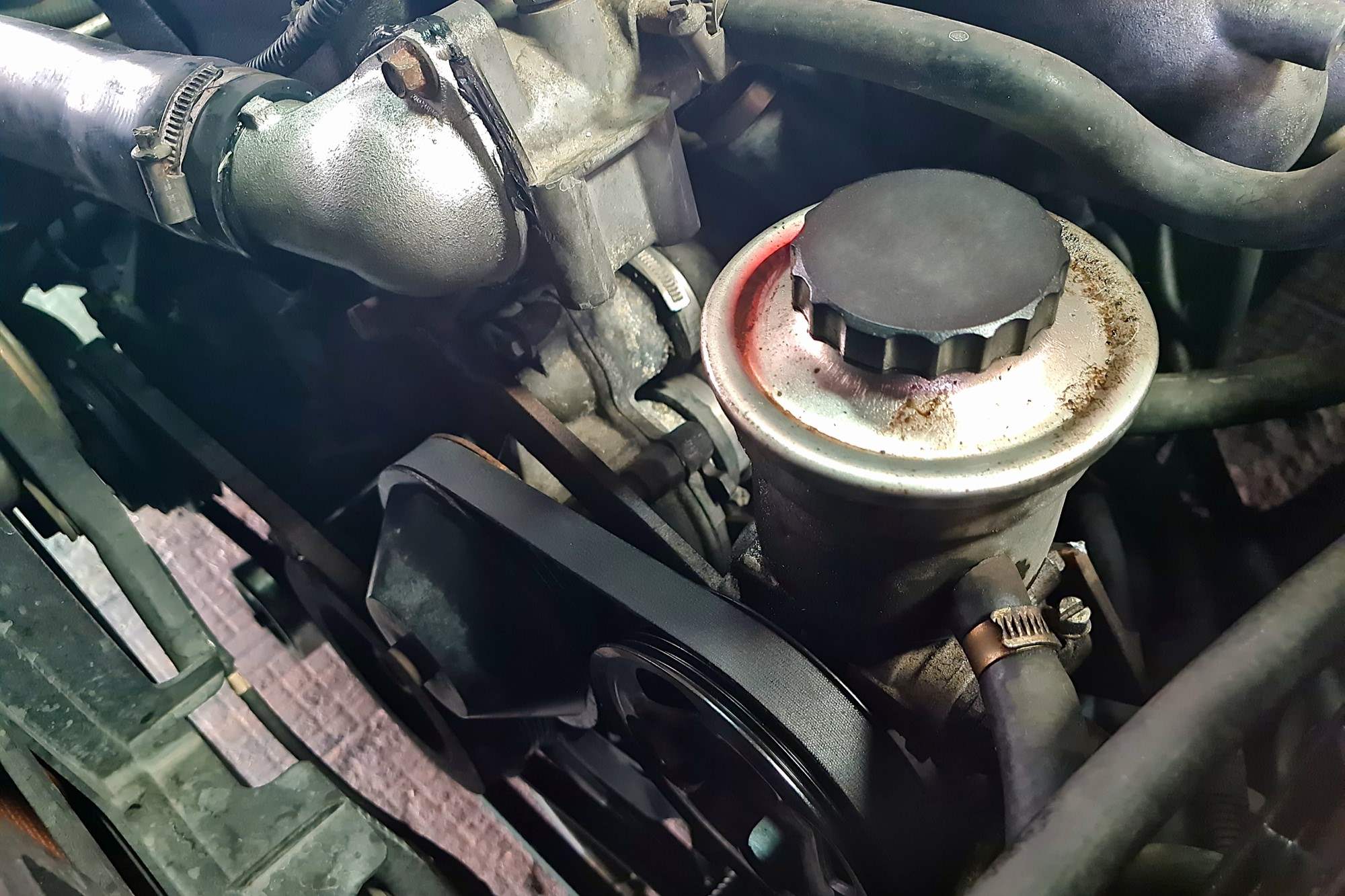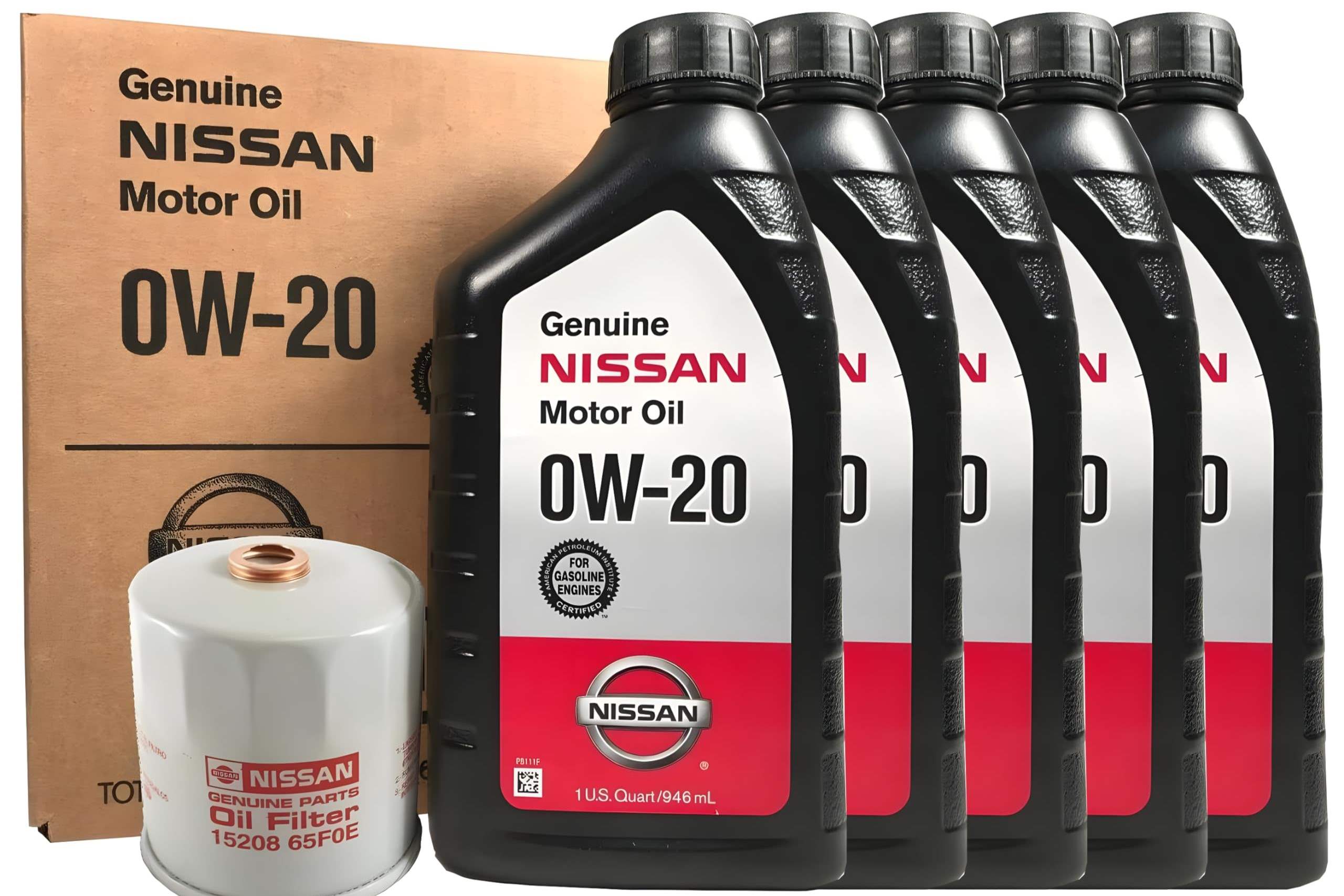Home>Automotive>5 Signs Your Car Is Running On Empty – Don’t Miss #3!


Automotive
5 Signs Your Car Is Running On Empty – Don’t Miss #3!
Modified: February 27, 2024
Discover the top 5 signs that your car is running on empty and find out why you shouldn't miss sign #3! Keep your automotive in top shape with these crucial tips.
(Many of the links in this article redirect to a specific reviewed product. Your purchase of these products through affiliate links helps to generate commission for Noodls.com, at no extra cost. Learn more)
Table of Contents
Introduction
As a car owner, it's essential to be attuned to the subtle signals your vehicle sends when it's in need of attention. Just like our bodies, cars have ways of communicating when something isn't quite right. Understanding these signs can help you address issues early, preventing potentially costly repairs and ensuring your safety on the road.
In this article, we'll explore five common indicators that your car may be running on empty, both figuratively and literally. From engine misfires to decreased fuel efficiency, each sign serves as a valuable cue, prompting you to take action and give your vehicle the care it deserves.
So, if you've ever experienced a sudden loss of power, heard strange noises emanating from under the hood, or noticed a decline in your car's performance, this comprehensive guide will shed light on these warning signs and empower you to make informed decisions about your vehicle's maintenance and upkeep. Let's delve into the details and learn how to decode these signals from your car, ensuring that you're always one step ahead when it comes to keeping your vehicle in optimal condition.
Sign #1: Engine Misfires
When your car's engine misfires, it's akin to a hiccup in its normal rhythm. This unsettling occurrence can manifest as a sudden jolt or a feeling of hesitation when you're accelerating. The root causes of engine misfires can vary, from faulty spark plugs and ignition coils to issues with the fuel system or even a malfunctioning oxygen sensor.
One of the most common culprits behind engine misfires is worn-out or fouled spark plugs. Over time, these vital components can become coated with carbon deposits, leading to inconsistent sparking and, in turn, misfires. Additionally, malfunctioning ignition coils can disrupt the ignition process, resulting in irregular engine performance.
Another potential cause of engine misfires is related to the fuel system. Clogged fuel injectors or a failing fuel pump can compromise the delivery of fuel to the engine, leading to incomplete combustion and noticeable misfires. Furthermore, a faulty oxygen sensor can disrupt the air-fuel ratio, causing the engine to run lean or rich and resulting in misfires and reduced efficiency.
Detecting engine misfires early is crucial in preventing further damage to your vehicle. Ignoring this sign can lead to more severe issues, such as damage to the catalytic converter or even engine overheating. Therefore, if you notice your car exhibiting symptoms of engine misfires, such as rough idling, loss of power, or a flashing check engine light, it's imperative to have it inspected by a qualified mechanic.
By addressing engine misfires promptly, you can not only restore your car's smooth operation but also prevent potential damage to other critical components. Regular maintenance, including scheduled spark plug replacements, ignition system checks, and fuel system cleanings, can go a long way in preventing engine misfires and ensuring your car's engine operates optimally.
In summary, engine misfires are a clear indication that your car is running on empty in terms of performance and efficiency. Being proactive in addressing this issue can safeguard your vehicle's longevity and your driving experience.
Sign #2: Reduced Power and Acceleration
Experiencing reduced power and acceleration in your vehicle can be a disconcerting and frustrating issue. When your car struggles to pick up speed or feels sluggish during acceleration, it's a clear indication that something is amiss under the hood. This sign of diminished performance can stem from various underlying factors, each of which can significantly impact your driving experience and the overall health of your vehicle.
One common culprit behind reduced power and acceleration is a compromised fuel or air delivery system. A clogged air filter can restrict the airflow into the engine, leading to an imbalance in the air-fuel mixture and subsequently hindering power generation. Similarly, a dirty or clogged fuel filter can impede the steady flow of fuel to the engine, depriving it of the necessary resources to propel the vehicle with vigor.
Additionally, problems with the exhaust system, such as a clogged catalytic converter or a malfunctioning oxygen sensor, can impede the efficient expulsion of exhaust gases, resulting in reduced engine power. Moreover, issues with the ignition system, including faulty spark plugs, ignition coils, or a malfunctioning electronic control module (ECM), can disrupt the combustion process, leading to lackluster acceleration and reduced power output.
Furthermore, mechanical issues, such as a slipping transmission or a worn-out clutch, can also contribute to the diminished power and acceleration experienced while driving. A slipping transmission fails to transfer power effectively from the engine to the wheels, while a worn-out clutch can lead to slippage and inefficient power transmission, both of which result in reduced performance.
Addressing reduced power and acceleration promptly is crucial to prevent further damage to your vehicle and ensure a safe driving experience. Regular maintenance, including air filter and fuel filter replacements, along with periodic inspections of the exhaust and ignition systems, can help identify and rectify potential issues before they escalate.
By being attentive to the signs of reduced power and acceleration, you can take proactive measures to maintain your vehicle's optimal performance and safeguard your driving satisfaction. Remember, a smoothly running engine that delivers consistent power and acceleration is not only essential for your comfort and convenience but also for the longevity of your vehicle's vital components.
Sign #3: Strange Noises
Unusual sounds emanating from your vehicle can serve as audible distress signals, indicating potential issues that require attention. These uncharacteristic noises can range from subtle whines and hums to more pronounced clunks and rattles, each hinting at specific underlying problems within your car's intricate machinery.
One of the most common sources of strange noises is the exhaust system. A steady, rhythmic ticking or hissing sound may point to a leak or crack in the exhaust manifold or pipes, compromising the system's efficiency and leading to increased emissions. Additionally, a loud, rumbling noise could signify a failing muffler or resonator, affecting both the vehicle's performance and environmental impact.
Furthermore, peculiar noises originating from the engine bay can be indicative of various issues. A persistent knocking or tapping sound may signal low oil pressure or worn-out engine bearings, necessitating immediate attention to prevent catastrophic engine damage. Additionally, a high-pitched squeal during engine startup or acceleration often points to a worn-out serpentine belt or a malfunctioning pulley, both of which can lead to critical system failures if left unaddressed.
In addition to the engine and exhaust system, the suspension and steering components can also be sources of unusual noises. A clunking or creaking sound while navigating bumps or making turns may indicate worn-out ball joints, bushings, or shock absorbers, compromising the vehicle's stability and handling. Moreover, a persistent whining or groaning noise when steering could be a sign of low power steering fluid or a failing power steering pump, necessitating immediate inspection to prevent steering failure.
Detecting and addressing strange noises promptly is crucial to maintain your vehicle's reliability and safety. Regular inspections by a qualified mechanic, along with adherence to scheduled maintenance intervals, can help identify and rectify potential issues before they escalate, ensuring a quieter and more enjoyable driving experience.
In summary, strange noises from your vehicle serve as audible red flags, prompting you to delve deeper into the underlying causes and address potential issues before they compromise your car's performance and safety. By heeding these auditory warnings and taking proactive measures, you can ensure that your vehicle operates smoothly and quietly, reflecting its optimal condition and your commitment to diligent maintenance.
Sign #4: Difficulty Starting the Engine
Experiencing difficulty when starting your car's engine can be a frustrating and concerning issue, often catching you off guard and disrupting your daily routine. This sign of trouble can manifest in various ways, from prolonged cranking and sputtering to a complete failure to ignite the engine. Understanding the potential causes behind this vexing problem is crucial in restoring your vehicle's reliability and ensuring a seamless start every time you turn the key.
One common culprit behind difficulty starting the engine is a compromised or aging battery. Over time, the battery's capacity diminishes, leading to reduced power output and a struggle to provide the necessary electrical energy to start the engine. Additionally, corroded or loose battery terminals can impede the flow of electricity, further exacerbating the starting issue. Regular inspection and testing of the battery, along with timely replacements when necessary, are essential in maintaining a reliable starting system.
Moreover, a faulty starter motor or solenoid can contribute to difficulties in initiating the engine. A worn-out starter motor may struggle to engage the flywheel, resulting in sluggish cranking and intermittent starting issues. Similarly, a malfunctioning solenoid, responsible for transmitting electrical current to the starter motor, can hinder the starting process, leading to frustrating delays and potential failures to start the engine.
Furthermore, fuel and ignition system issues can also play a significant role in causing difficulty when starting the engine. A clogged fuel filter or a failing fuel pump can disrupt the steady delivery of fuel to the engine, leading to prolonged cranking and erratic starting behavior. Similarly, faulty spark plugs, ignition coils, or a malfunctioning ignition control module can compromise the ignition process, resulting in misfires and difficulties in starting the engine.
Addressing difficulty starting the engine promptly is crucial in maintaining your vehicle's reliability and ensuring a stress-free driving experience. Regular maintenance, including battery inspections, starter system checks, and fuel system cleanings, can help identify and rectify potential issues before they escalate, ensuring a dependable starting process every time you turn the key.
In summary, difficulty starting the engine is a clear indication that your vehicle is in need of attention and care. By understanding the potential causes behind this issue and taking proactive measures to address them, you can restore your car's reliability and ensure a seamless start, reflecting its optimal condition and your commitment to diligent maintenance.
Sign #5: Decreased Fuel Efficiency
Experiencing a decline in fuel efficiency can be a cause for concern for any car owner, as it not only impacts your budget at the pump but also serves as a clear indicator of potential underlying issues within your vehicle's fuel and engine systems. When your car starts to guzzle more fuel than usual for the same distance traveled, it's essential to delve into the potential causes behind this decrease in efficiency and take proactive measures to address the issue.
One common culprit behind decreased fuel efficiency is a compromised air-fuel ratio, often stemming from issues with the fuel delivery and combustion processes. A clogged or dirty air filter can restrict the airflow into the engine, leading to an imbalance in the air-fuel mixture and subsequently causing the engine to consume more fuel to compensate for the reduced oxygen supply. Additionally, a failing oxygen sensor can disrupt the optimal air-fuel ratio, leading to inefficient combustion and increased fuel consumption.
Moreover, problems within the fuel system, such as clogged fuel injectors or a failing fuel pump, can impede the steady delivery of fuel to the engine, resulting in incomplete combustion and decreased efficiency. Furthermore, a malfunctioning mass airflow sensor (MAF) can inaccurately measure the amount of air entering the engine, leading to an improper fuel mixture and subsequent fuel wastage.
In addition to fuel-related issues, mechanical factors can also contribute to decreased fuel efficiency. Worn-out or improperly inflated tires can increase rolling resistance, forcing the engine to work harder and consume more fuel to maintain speed. Similarly, a dragging brake caliper or a misaligned wheel can lead to increased friction and reduced efficiency, further impacting fuel consumption.
Addressing decreased fuel efficiency promptly is crucial in restoring your vehicle's optimal performance and reducing your overall fuel expenses. Regular maintenance, including air filter replacements, fuel system cleanings, and tire inspections, can help identify and rectify potential issues before they escalate, ensuring that your car operates efficiently and economically.
In summary, decreased fuel efficiency serves as a tangible indicator of potential issues within your vehicle's fuel and engine systems. By understanding the potential causes behind this decline and taking proactive measures to address them, you can restore your car's efficiency, reduce fuel expenses, and ensure a more sustainable and economical driving experience.
Conclusion
In conclusion, being attuned to the five signs that your car may be running on empty is crucial for every car owner. Engine misfires, reduced power and acceleration, strange noises, difficulty starting the engine, and decreased fuel efficiency are not just isolated issues; they are vital cues that your vehicle uses to communicate its need for attention and care.
Understanding these signs empowers you to take proactive measures, ensuring that your vehicle operates optimally and reliably. By addressing these indicators early, you can prevent potential damage to critical components, avoid costly repairs, and maintain a safe and enjoyable driving experience.
Regular maintenance, including scheduled inspections, component replacements, and system cleanings, plays a pivotal role in identifying and rectifying potential issues before they escalate. By staying proactive and attentive to your car's needs, you can ensure that it continues to perform at its best, reflecting both its optimal condition and your commitment to diligent maintenance.
Ultimately, by heeding these signs and taking decisive action, you not only safeguard your vehicle's longevity and performance but also enhance your driving satisfaction and peace of mind. Your car is more than just a mode of transportation; it's a reliable companion that deserves the best care and attention to keep it running smoothly for the miles ahead.














